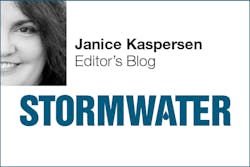
Tolstoy famously wrote, “Happy families are all alike; every unhappy family is unhappy in its own way.” Although he made no mention of it, the same principle might apply to flooded property. Every region has its own particular woes when the waters begin to rise.
In the case of Hurricane Florence—not quite yet done with us as of this writing—the problems involve two specific things: pigs and coal ash. There are about 9 million pigs in North Carolina’s 6,100 or so CAFOs—concentrated animal feeding operations. EPA has struggled with how to regulate CAFOs during the best of times; during periods of heavy flooding, it’s often impossible to stop the animal waste from reaching surface waters. You can see satellite photos of the region here showing the effects of the flooding as of last week.
Similarly, the flooding from Florence caused breaches in some of the basins that contain coal ash from power plants. Coal ash contains an impressive list of substances we try to keep out of surface waters, including lead, mercury, selenium, arsenic, cadmium, and chromium. Flows from the basins—some of which were scheduled for closure within a few months—reached the Cape Fear River. Duke Energy, the utility company that owns the power plants and basins, says its own tests have shown no impairment in water quality downstream, or have shown increases in levels of heavy metals that are still within regulatory limits. Environmental groups and North Carolina’s Department of Environmental Quality are in the process of collecting and analyzing their own water samples.
This New York Times article details some of the other water-quality threats from Florence and lists high-risk sites and facilities in the region. It also cites a study done earlier this year showing about 2,500 sites nationwide that house toxic chemicals are located in floodplains, and 1,400 of those are in very high-risk flood zones. What lessons should we take from this event? If you live or work in an area prone to flooding, what steps have you observed local facilities taking—or, depending on your job, directed them to take—to reduce their risks?
Western Water Summit Call for Speakers Is Open
The Western Water Summit will take place February 6–7, 2019, in San Diego, CA. It focuses on all facets of water management: groundwater, surface water, wastewater, drinking water, irrigation, water law, reuse, generation, restoration, conservation and efficiency, and erosion and sedimentation. The Call for Speakers is open until November 1. Find more information about the conference tracks and registration at www.westernwatersummit.com.
About the Author
Janice Kaspersen
Janice Kaspersen is the former editor of Erosion Control and Stormwater magazines.